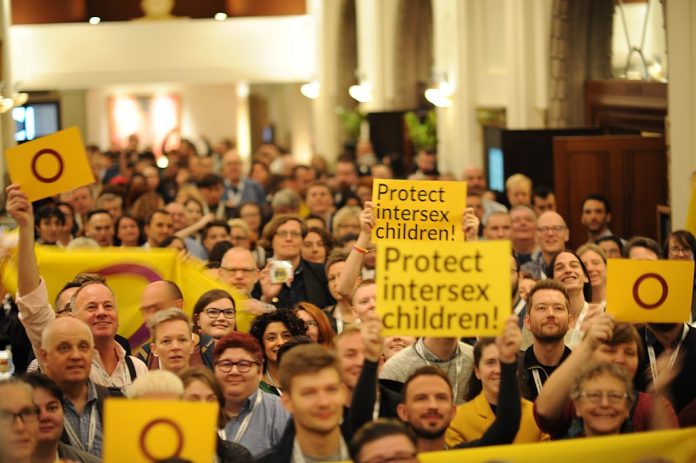Civil Liberties MEPs urge the European Commission and member states to put measures forward for protecting and promoting the rights of intersex people in the EU.
They denounce that intersex children still face human rights violations and genital mutilations in the EU, and that intersex variations continue to be treated as diseases, despite the lack of evidence supporting the success of medical treatments in the long term. They also demand more flexibility in birth registration procedures and facilitating the change of names on identity cards.
Intersex individuals are born with physical sex characteristics that do not fit medical or social norms for female or male bodies. These variations may manifest in primary characteristics (such as the inner and outer genitalia, the chromosomal and hormonal structure) and/or secondary characteristics (such as muscle mass, hair distribution and stature).
In a resolution adopted with 30 votes to 7, the Committee stressed that intersexuality should no longer be dealt with as a pathology, and called on member states to pursue the removal of the category of “gender incongruence in childhood” in the International Classification of Diseases of the World Health Organisation.
Ban unnecessary surgeries
MEPs condemn the high prevalence of sex normalising treatments and surgery, despite not being medically necessary in most of the cases, and encourage EU countries to follow the example of those, such as Portugal and Malta, where these surgical procedures are banned.
The text denounces that surgeries are often performed on intersex children without their prior, personal, full and informed consent, and underlines that genital mutilations can cause life-long consequences, such as psychological trauma and physical impairments.
Birth registration and identity documents
The resolution underlines the importance of “flexible birth registration procedures” for intersex children. It points to legislation already in place in some member states that allows gender recognition based on self-determination, and encourages other countries to adopt similar rules, including flexible procedures to change gender markers and names on identity documents, including the possibility of gender-neutral names.
No EU money to projects contributing to rights’ violations
MEPs call on the European Commission and member states to increase their support, including financial aid, to organisations fighting the stigmatisation of intersex people. They also demand the Commission to make sure that EU funds do not support research or medical projects that further contribute to human rights’ violations of intersex people.
The draft resolution notes that gender recognition based on self-determination is only possible in six EU countries, while many member states require sterilization to allow legal gender recognition and will be put to a vote by the full House during the January plenary session in Strasbourg, following a debate with Council and Commission representatives.

